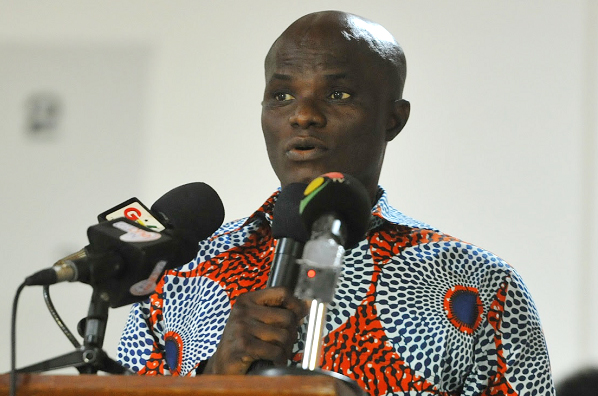Francis Ato Cudjoe
The Ministry of Fisheries and Aquaculture Development has announced that a one-month ban on fishing by inshore fishermen and artisanal fleets will take place from May 15, 2019 to June 15, 2019 to replenish the dwindling stock of fishes in the nation’s marine waters.
The Deputy Minister for Fisheries and Aquaculture Development, Francis Ato Cudjoe, who announced this in Parliament yesterday on behalf of the minister, said following the postponement of the 2018 closed season, the ministry, together with the Fisheries Commission, intensified its engagement with stakeholders on the need for the observation of the closed season this year for the benefits of all parties.
“As Parliament may recall, this ministry, together with the Fisheries Commission, in accordance with sections 76 (3) and 84 of the Fisheries Act, 2002 (Act 625), has decided to use the closed season to address the dwindling stock of fishes in our marine waters,” he stated.
According to the deputy minister, wider and extensive consultations and engagements with all stakeholders, including National Fishers Association of Ghana (NAFAG), the National Canoe Fishermen Council (GNCFC), Ghana Industrial Trawlers Association and many others, had taken place and that all stakeholders had agreed on the proposed closed season for this year.
The deputy minister said that the latest consultative meeting was held on February 5, 2019, at the NAFAG Hall which the Parliamentary Select Committee on Food, Agriculture and Cocoa Affairs participated. A consensus was reached that May 15 to June 15, 2019 would be implemented as the closed season for inshore and artisanal fleets and August 1 to September 30, 2019 for industrial trawlers.
The ranking member for Food, Agriculture and Cocoa Committee of Parliament and National Democratic Congress (NDC) Member of Parliament for Asunafo South, Eric Opoku, was in support of the measures in principle but said it would have to take concrete interventions by the government to avoid a situation where fishermen would not have any income to depend on and the cost of fish on the market within that period would not see drastic increase as a result of the ban.
He said what government should have done was to have invested heavily in aquaculture development where a lot of people would have been encouraged to do aquaculture so that if government decides to place a ban on marine fishing, it will not affect fish production in the country.
He explained that the nation currently is able to produce 400,000 tons out of the one million tons of fish requirement in the country which has necessitated the importation of volumes of fish to meet the huge deficit.
He said the ban could further exacerbate the situation which would call for more importation of fish at the economic peril of the country.
By Thomas Fosu Jnr


